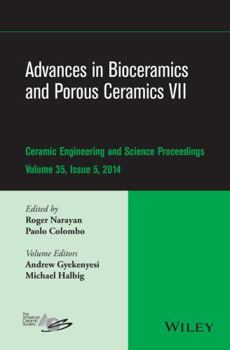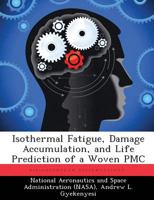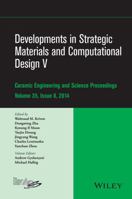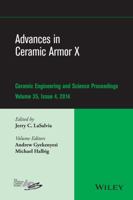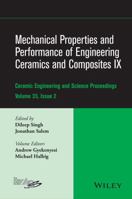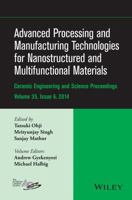Advances in Bioceramics and Porous Ceramics VII, Volume 35, Issue 5
Select Format
Select Condition 
Book Overview
A collection of 15 papers from The American Ceramic Society's 38th International Conference on Advanced Ceramics and Composites, held in Daytona Beach, Florida, January 26-31, 2014. This issue includes papers presented in Symposium 5 - Next Generation Bioceramics and Biocomposites and Symposium 9 - Porous Ceramics: Novel Developments and Applications.
Format:Hardcover
Language:English
ISBN:1119040388
ISBN13:9781119040385
Release Date:January 2015
Publisher:Wiley-American Ceramic Society
Length:208 Pages
Weight:1.05 lbs.
Dimensions:0.7" x 6.1" x 9.3"
More by Andrew L. Gyekenyesi
Customer Reviews
2 customer ratings | 2 reviews
There are currently no reviews. Be the first to review this work.











